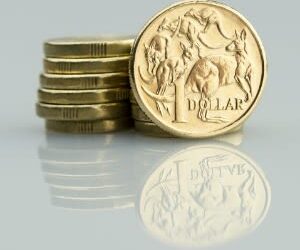The industry fund, with assets exceeding $139 billion, was also commended for its “likeable mentality” and for acting decisively on opportunities, alongside leaning towards long-term themes.
The research firm rated UniSuper “silver” and assigned “above average” ratings to its process, people, and parent.
In its analysis, Morningstar also highlighted the fund’s relatively modest exposure to unlisted assets combined with its focus on investment commitments to infrastructure, with a heavy orientation to airports. It praised the fund for being an early investor in Nvidia, with technology continuing to play a strong theme within its equity exposure.
UniSuper’s willingness to opportunistically deploy capital also garnered praise, as did its focus on thematic, with the research firm saying that much of the fund’s portfolio is managed internally. According to Morningstar’s senior analyst David Little, its strong leadership and collaborative nature highlight a team that is aligned with the total portfolio approach that has been adopted.
“UniSuper has moved relatively early to internalise investment management functions, which now cover over 70 per cent of its funds under management,” he said in the analysis.
“This began in 2010, with in-house teams now handling large swathes of public market assets across equities, fixed income, and credit, supplemented by a selection of external managers.
“That said, the overall exposure to unlisted assets is noticeably smaller than some rivals, even as UniSuper prioritises its growth.”
At the same time, its thematic influence has persistently leaned towards global technology companies as well as those with discernible links to the faster-growing Asian region, primarily through internally managed global equity strategies.
The fund has also been praised for its ability to deliver impressive long-term returns across its multi-sector fund suite, with allocations to Australian equities being a major factor, with internally and externally managed capabilities said to be delivering “above-benchmark results”.
“‘Fortress’ infrastructure holdings have been a boon since their inclusion in 2013, while strategy expansion, including concentrated Australian equities and a dedicated resources sleeve, have also hit their mark,” Little said in the note.
The CIO
Morningstar said that the role of UniSuper’s chief investment officer, John Pearce, has been instrumental in the development of the fund’s processes and its shift to internalised investment management.
Pearce, who came on board in 2009, managed to forge his own path and generated impressive results for the fund.
“Pearce has been judicious in adding staff over time, relying on the team’s collaborative approach and willingness to lean on external strategic investment partners for input,” Little said.
But although Pearce had a major influence on asset allocation and thematic ideas, the promotion of Nick Footner to head of asset allocation is expected to, according to Morningstar’s analysis, bolster oversight and capitalise on the expertise of the underlying sector teams.
According to Little, the team is on “the more compact end relative to total funds under management”, with senior leaders including mostly UniSuper veterans.
“Senior investment staff is assessed on the performance of UniSuper’s balanced fund versus peers and the returns of their own strategies against the benchmark, typically over one-and three-year periods, as well as on more qualitative measures gauging contributions to the team,” Little said.




